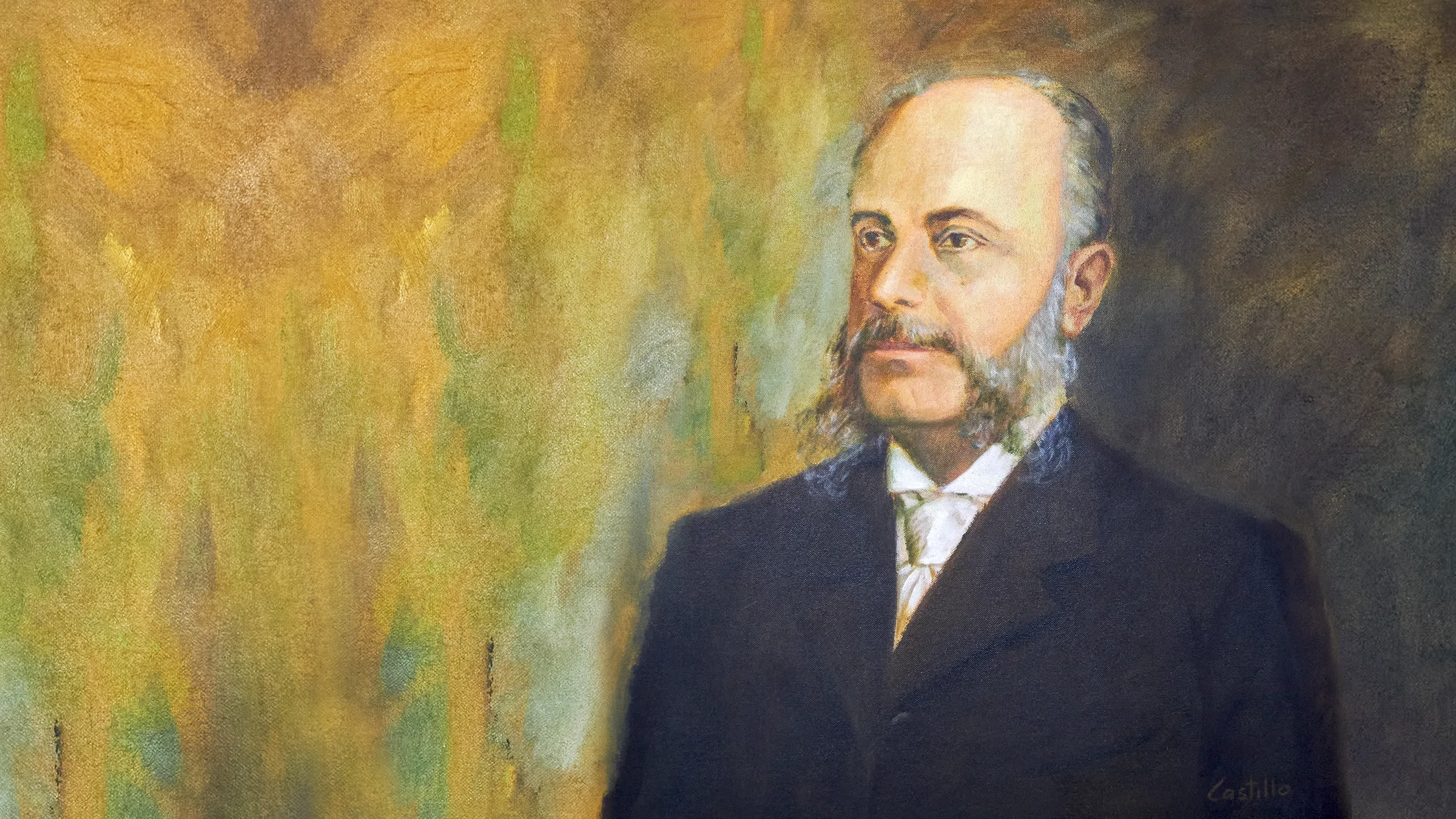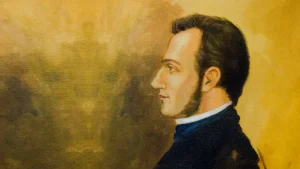Biography of Marco Aurelio Soto Martinez

Marco Aurelio Soto, a Honduran lawyer and politician, who revolutionized Honduras through a series of socio-political changes. He was born on November 13, 1846, in one of the old houses in the area known at that time as Los Altos del Molino in La Plazuela, Tegucigalpa, Honduras.
He passed away on February 25, 1908, at the age of 62 in Paris, France. He graduated as a lawyer from the University of San Carlos de Borromeo in Guatemala City. Soto supported the Reform Movement initiated in 1871 by Justo Rufino Barrios. His government has been one of the most prosperous in Honduras.
Family Life
Doctor Marco Aurelio Soto was born on November 13, 1846, in Tegucigalpa, Republic of Honduras. His parents were Dr. Máximo Soto and Mrs. Francisca Martínez. At the age of nine, he moved to Guatemala with his father, Dr. Máximo Soto, where he pursued his studies and successfully completed his law degree.
From a young age, he gained attention for his well-written literary and political articles, the latter inspired by the principles proclaimed by the 1871 revolution. General Justo Rufino Barrios called upon Dr. Soto to serve as an Undersecretary of State. In this position, Dr. Soto demonstrated his organizational talent. Shortly thereafter, due to the absence of the respective Minister, he was entrusted with the Secretary of Governance, Justice, and Ecclesiastical Affairs, a position he was soon appointed to permanently.
He later served as the Minister of Foreign Relations and Public Instruction. In the latter role, he organized primary, secondary, and professional public education based on modern principles. In 1876, Soto was appointed as the Plenipotentiary Minister of Guatemala to the Government of El Salvador, with the aim of strengthening peace between the two republics. His mission was successfully carried out, and on May 8 of that year, the «Soto-Ulloa» treaty was signed in the city of Santa Ana.
Presidency
Marco Aurelio Soto governed Honduras in different periods. In 1876, he served as the provisional president. In 1877, he assumed the presidency constitutionally, a term that extended until 1883 after his re-election. During his administration, with the assistance of Ramón Rosa, Soto implemented liberal reforms. These administrative, political, economic, and social reforms aimed to change the disastrous situation Honduras was facing.
During his presidency, there was a complete overhaul in Honduras. New codes were enacted, telegraph and postal services were established, the General Hospital and the National Library were founded, parks were built in Tegucigalpa (where the capital was relocated), statues of prominent national figures were commissioned, and the 1880 Political Constitution was promulgated.
Soto constructed some sections of the railroad and initiated an unprecedented educational program in the country, organizing primary, secondary, and professional education. He brought teachers from Spain to impart classes in Honduras, reorganized the «Central University of Tegucigalpa,» and issued new statutes, transforming it into the «National University of Honduras.» In 1879, he founded the National University of the West in the city of Santa Rosa de Copán in response to the interest shown by the citizens of that capitalist locality in the western part of the country.
In addition, Dr. Soto permanently relocated the capital of the republic to the city of Tegucigalpa (previously shared between Tegucigalpa and Comayagua) and selected a Presidential House for his administrative tasks. Despite the progress achieved during Soto’s administration, Honduras fell back into social instability due to the lack of staple products such as coffee to sustain a stable economy.
During his presidency, Soto was threatened by the Guatemalan government of Justo Rufino Barrios, which forced him to leave the country and transfer the presidency to a council of ministers.
Transfer of the Capital to Tegucigalpa
Marco Aurelio moved the capital of the republic from Comayagua to Tegucigalpa on October 30, 1880. The reasons given for this decision were the mistreatment of his wife, Doña Celestina Mijango, by the society of Comayagua, the proximity to his mining interests in Valle de Angeles, and his mining business with Julius Valentine, the owner of the New York Mining Company.
President Soto established the first telegraph system in Honduras and organized the postal system by creating the National Post, which was led by Don Tomás Estada Palma. He improved communication routes, especially in the south, to give importance to Amapala as a Pacific port. Dr. Soto frequently used this route, and when he stopped to rest, spend the night, or have a meal along the way, he would stay at a place that eventually acquired the name Marcovia, which came from the reverse composition of the phrase «la vía de Marco» (Marco’s way).
He promoted education and founded the first secondary school in the country in 1878, which was directed by the American Edmundo Riopel and is now known as the Central Institute «Vicente Cáceres.» He made profound reforms to the Central University, transforming it into the National University of Honduras.
Marco Aurelio ordered the creation of the first statues and busts of Honduran patriots, including those of General Morazán, Sabio Valle, Cabañas, Reyes, Columbus, and Liberty. He reformed the customs and public finances systems, enacted the Mining Law, initiated the construction of the first General Hospital in Tegucigalpa, built the Central Penitentiary, established the National Police, founded the Military Academy, and provided the necessary support to increase coffee production in the western part of the country. He also created the departments of Colón and Intibucá.
Liberal Reform
The Soto-Rosa partnership marked a reformist era that was threatened by Justo Rufino Barrios, who from Guatemala tried to impose an absolutist policy to the extent that in 1878, he conspired with General José María Medina Castejón to destabilize the Soto government. The response to this was the arrest of the rebellion leader and his execution in Santa Rosa de Copán.
Soto Martínez admired intellect and his close collaborators such as Ramón Rosa, Adolfo Zuniga, Carlos Alberto Uclés, José Joaquín Palma, and other great thinkers of his time, but he also admired himself.
Marco Aurelio Soto laid the foundation for progress in Honduras. Perhaps his work has not been recognized as the beginning of the era of national development, and his name, magnified by his dedication to the Honduras that saw him born, has been attempted to be diminished by the selfishness of the past and the historical shortsightedness of the present.



